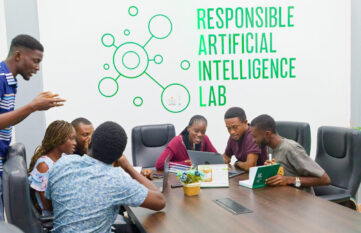Although Kenya, ‘dubbed Silicon Savanah’, has made significant investment in information and communication technology (ICT) as a driver of economic growth and citizen participation, more is required to ensure marginalized groups and women can fully participate in the digital sphere.
Therefore, the think tank KICTANet, with the support of the Human Rights Sector Project and the Digital Centre Kenya, organised a workshop for female parliamentarians of the ICT Caucus – for a safe and inclusive internet in Kenya. As the first official group with representatives from the National Assembly, Senate and Communication Authority of Kenya, the participants addressed online gender-based violence (OGBV) as one of the biggest challenges for the inclusion of women and marginalised groups on the internet.
KICTANet presented results of their study, that shed light on social, political, and legal aspects of OGBV that have previously been understudied in the country. Many parliamentarians expressed worry highlighting that it at times limited their expression online. Some participants shared their experience as victims of online harassment and cyber bullying:

Emmanuel Ikwuegbu © Unplash
When I am a victim of a crime, my phone is stolen or whatever I know am supposed to report to the police. So how then would I know to report OGBV to the Communication’s Authority and not the police?
Workshop-participant
The workshop further discussed additional measures to ensure digital technologies are inclusive by promoting the full inclusion of persons with disabilities (PWD). After all, it is not only the technical handling, but also the legal framework that poses a challenge for many people with disabilities – as one participant explains:
Technology has almost been equal to giving me sight itself, hence why special interest groups such as blind and visually impaired not only need smart devices but training on how to use screen readers and we need to create inclusive legislative frameworks to support them.
Workshop-participant
The workshop recommended the need to equip law enforcement with the training and sensitivity to assist all victims, particularly members of the LGBTIQ+ community and persons with disabilities. As a direct follow-up measure, KICTANet is currently planning to develop a guide on the prosecution of OGBV aimed at investigative authorities.
The workshop was implemented as part of a pilot project by the Sector Programme Human Rights and the Digital Transformation Centre Kenya, that combined data collection and capacity building to counter Online Gender-Based Violence (OGBV). Carried out trainings were based on the OGBV module of the e-learning Digital Enquirer Kit, and were accompanied by mental health professionals to support participants in coping with experienced violence. Within the scope of the project, KICTANet produced a study on OGBV in Kenya that can be read in full here.

© Canva
For me, it is encouraging seeing members of parliament taking on the challenge of OGBV. It honestly is scary knowing you are one twitter comment away from a wave of online bullying and I think it keeps me silent a lot.
Workshop-participant
The workshop was implemented as part of a pilot project by the Sector Programme Human Rights and the Digital Transformation Centre Kenya, that combined data collection and capacity building to counter Online Gender-Based Violence (OGBV). Carried out trainings were based on the OGBV module of the e-learning Digital Enquirer Kit, and were accompanied by mental health professionals to support participants in coping with experienced violence.





